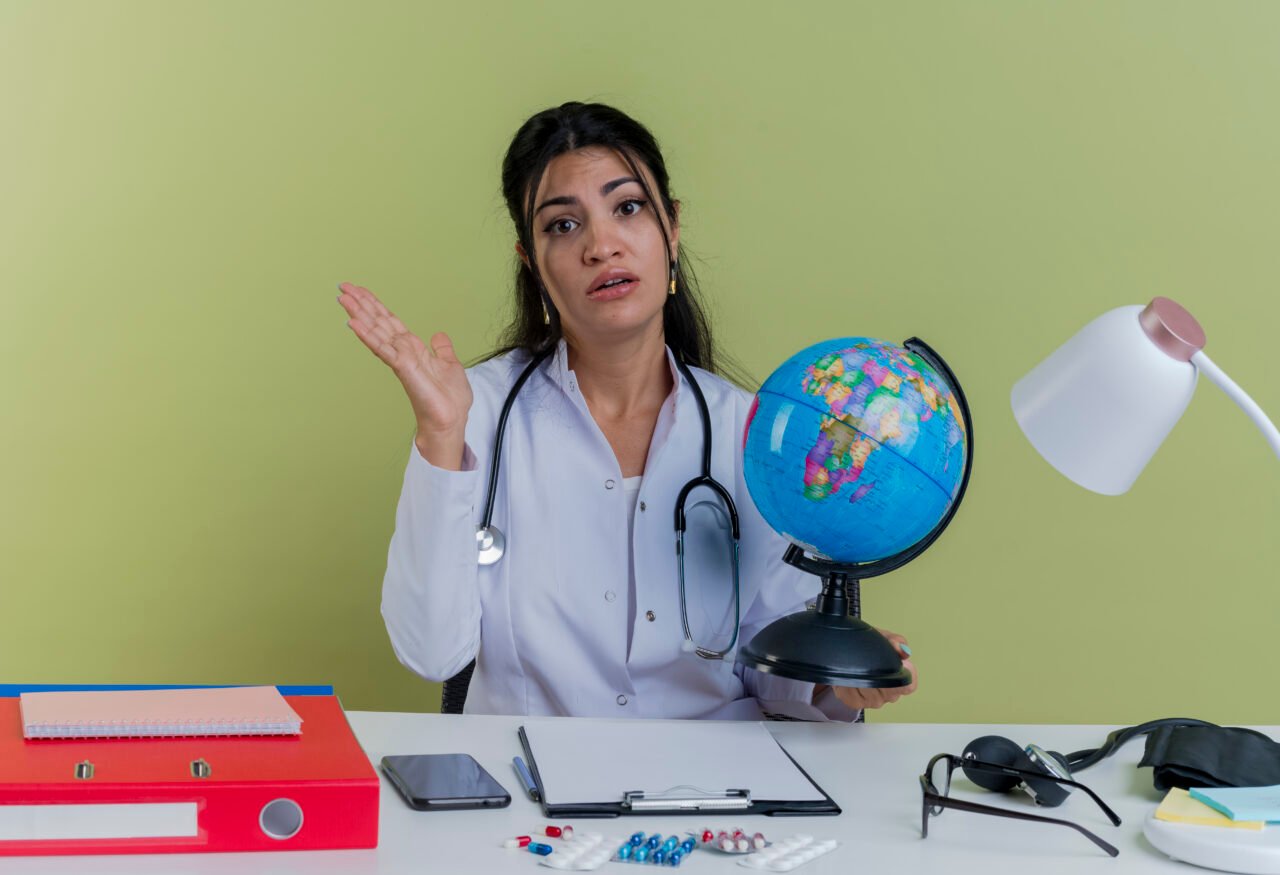Yes, Indian doctors can practise in Germany after completing their MBBS — but only after meeting a series of legal, academic, and language requirements set by German authorities. Germany is facing a shortage of medical professionals, especially in rural and aging populations, which opens doors for international medical graduates (IMGs), including those from India.
However, the path is structured and challenging, involving degree recognition, licensing exams, German language proficiency, and sometimes additional medical assessments.
Here’s a complete guide to help Indian MBBS graduates understand how they can legally and successfully practise medicine in Germany.
🩺 Step-by-Step Guide for Indian Doctors to Practise in Germany

✅ 1. Complete Your MBBS from a Recognized University in India
To apply for a medical license in Germany, you must have:
- An MBBS degree from an MCI/NMC-approved institution.
- Completed internship (CRRI or house job).
- Registration with Medical Council of India (NMC) or State Medical Council.
💡 You do not need to complete NEET-PG or appear for FMGE to move to Germany — but you must meet German licensing standards.
📄 2. Apply for Equivalence (Anerkennung) of Medical Degree
Indian MBBS degrees are not automatically recognized in Germany. You must apply for an equivalence assessment with the relevant State Medical Authority (Approbationsbehörde) in the state you plan to work.
You’ll submit:
- MBBS degree + marksheets
- Curriculum (syllabus) of your course
- Proof of internship
- Medical registration (NMC or State Council)
- Passport & CV
- Language certificates (see below)
- Police clearance & medical fitness
All documents must be officially translated into German and certified.
⚖️ 3. Understand the Two Licensing Options
Germany offers two types of medical licenses:
A. Approbation (Permanent Medical License)
- Valid across all Germany
- Needed to practise independently
- Requires full recognition of degree, German language proficiency, and passing the Knowledge Test if needed
B. Berufserlaubnis (Temporary License)
- Valid for 1–2 years
- Allows you to work under supervision
- Often used while preparing for the Approbation or exams
🧪 4. Pass the Kenntnisprüfung (Knowledge Test) — If Required
If your degree is not considered equivalent, you’ll need to take the Kenntnisprüfung — a licensing exam that tests clinical and theoretical knowledge.
- Conducted in German
- Covers key disciplines: Internal Medicine, Surgery, Pharmacology, Emergency Medicine, Legal/Ethical issues
- Oral-practical format (hospital simulation)
Passing this exam is required to receive full Approbation.
🗣️ 5. Learn German – B2/C1 Level
One of the biggest hurdles for Indian doctors is the language barrier. You must prove both general and medical German proficiency.
Minimum Language Levels:
- B2 General German (Goethe, Telc, or ÖSD certified)
- C1 Medical German – often tested through Fachsprachprüfung
The Fachsprachprüfung evaluates:
- Doctor–patient communication
- Medical terminology
- Documentation in German
🔤 Even if you are clinically brilliant, you cannot practise in Germany without strong German language skills.
🛂 6. Apply for a Visa to Germany
You can move to Germany under these options:
A. Visa under §17a Residence Act
- For preparation and recognition of foreign qualifications
- Valid for up to 18–24 months
- Lets you learn German and attend preparation courses
B. Job Seeker Visa (6 months)
- If you already have good German (B2–C1)
- Use it to search for job or hospital internships
🏥 7. Find a Job, Internship, or Observership (Hospitation)
You can start with:
- Hospitation: Short-term hospital observership to gain clinical exposure in Germany.
- Clinical Assistant or Fellowship Roles (with Berufserlaubnis)
- Apply via platforms like:
Most hospitals prefer doctors who already have B2/C1 German and a clear licensing plan.
🔍 Required Documents at a Glance
| Document | Required? |
|---|---|
| MBBS Degree (NMC-recognized) | ✅ |
| Internship Certificate | ✅ |
| Translated and notarized documents | ✅ |
| German Language Certificate (B2/C1) | ✅ |
| Medical Registration (India) | ✅ |
| Police Clearance Certificate | ✅ |
| Curriculum/Syllabus | ✅ |
| Passport | ✅ |
🏥 Salary Expectations for Doctors in Germany
Once fully licensed, doctors in Germany earn well:
- During training (residency): €4,500–€5,500/month gross
- Specialists: €6,000–€10,000/month
- Senior physicians: €10,000–€15,000/month
🪙 Salary depends on your level, location, specialty, and hospital.
⚠️ Challenges Indian Doctors May Face
- Learning German medical language
- Adapting to a new healthcare system
- Time-consuming bureaucracy (licensing can take 6–12 months)
- High competition in urban cities (e.g. Berlin, Munich)
✅ Advantages of Practising in Germany
- No tuition fees for medical licensing or language prep (many public options)
- High demand for foreign doctors in rural areas
- Permanent residency possible after 5 years
- Work–life balance, job security, and strong union protections
- Global recognition of experience

🔚 Conclusion
Yes, Indian doctors can absolutely practise in Germany after completing their MBBS — but the process requires patience, language skills, and proper planning. With thousands of Indian doctors already working in German hospitals, it’s a proven path to a successful international medical career.
If you’re committed to learning German and meeting the requirements, Germany offers a stable, well-paying, and respected path for Indian MBBS graduates.
